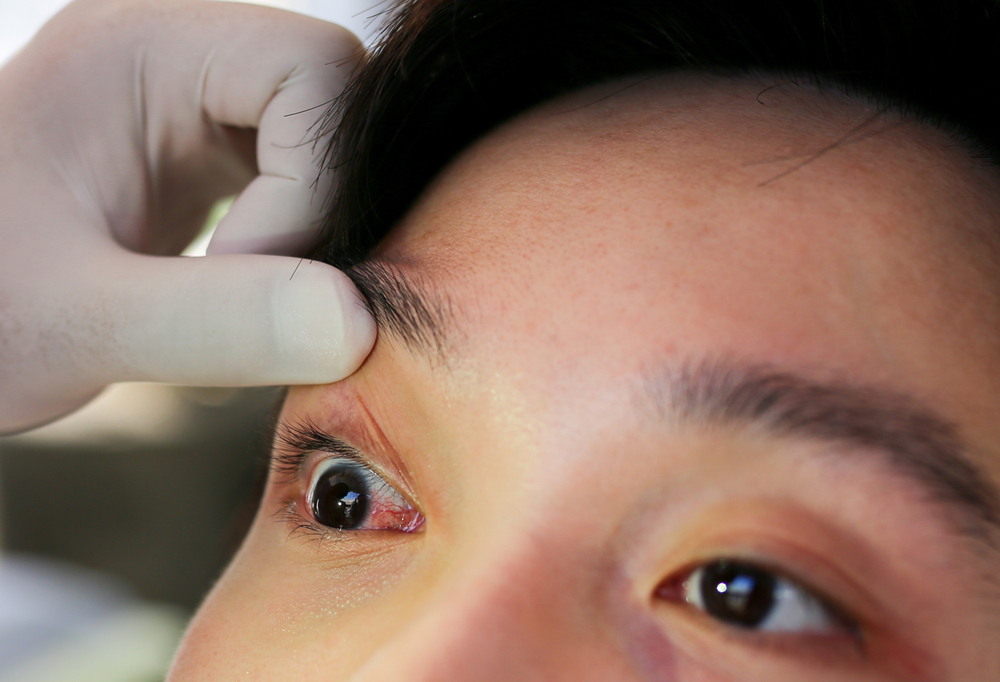
The likelihood of encountering an eye emergency can be unsettling, but being prepared is your best defense. Whether you're at home, at work, or enjoying leisure activities, knowing the steps to take in the event of an eye emergency is crucial.
Understanding Foreign Objects in the Eye
Foreign objects can vary from innocuous items such as sand grains to more serious threats like metal or glass shards. Recognizing that your eye has encountered an unwelcome entity is the first step in addressing the issue.
When a foreign object enters your eye, you'll likely experience a range of symptoms that signal the need for action. These may include a persistent sensation of something in your eye, excessive tearing, redness, sensitivity to light, blurred vision, or even pain.
If you suspect that something is in your eye, refrain from rubbing it, as this can cause further irritation or scratch your cornea. Instead, examine your eye in a mirror and try to locate the object. Blinking repeatedly may help to dislodge it. You can also rinse your eye with clean, lukewarm water or use a saline solution. If these methods don't work or if the object is large and visible, do not attempt to remove it yourself. Cover your eye with a clean cloth or cup and seek professional medical attention immediately.
Overview of Chemical Burns in the Eye
Chemical burns can result from a variety of sources, including household cleaners, industrial chemicals, or even natural substances like lime or pepper spray. The severity of the burn is determined by the chemical involved, the concentration, and the duration of exposure.
It's essential to identify the type of chemical that caused the burn, as the treatment may vary. Alkaline substances, for example, can penetrate the eye more deeply than acidic ones and often result in more severe injuries.
The first and most crucial step is to rinse your eye thoroughly with water or a sterile saline solution for at least 15 to 30 minutes. This dilutes the chemical and helps to wash away any residual particles. If you're wearing contact lenses, remove them immediately unless they are stuck to your eye, in which case you should continue rinsing and seek medical assistance.
Explaining Corneal Abrasions
Corneal abrasions are scratches on the surface of the cornea, the clear, protective outer layer of your eye. These injuries can result from direct trauma to the eye, such as being poked or rubbing your eye when a foreign object is present. Even seemingly harmless actions like removing makeup or putting in contact lenses can lead to a corneal abrasion if done carelessly.
The cornea is rich with nerve endings, making it one of the most sensitive areas of your body. As a result, even a minor scratch can be extremely painful and uncomfortable. Corneal abrasions can disrupt your vision and increase your risk of developing an eye infection.
If you have a corneal abrasion, you're likely to experience symptoms such as a sensation of grittiness or the feeling that something is trapped in your eye. Your eye may tear up excessively, become red, and be unusually sensitive to light. You might also notice blurred vision or a decrease in visual clarity. These symptoms can range from mild to severe, depending on the size and depth of the abrasion.
When faced with these symptoms, it's important not to rub your eye, as this can exacerbate the injury. Instead, gently rinse your eye with clean water or a saline solution to remove any particles that may be causing irritation. Blinking can help to naturally clear your eye of small debris. If pain persists or your vision is affected, it's crucial to protect your eye from light and contact, and seek medical attention.
The Importance of Seeing an Optometrist for Eye Emergencies
When it comes to your eyes, there is no substitute for professional care. Optometrists are trained to diagnose and treat a wide range of eye conditions, including emergencies. They have the tools and knowledge to assess the severity of the injury and to provide the appropriate treatment. Attempting to manage an eye emergency on your own can lead to misdiagnosis, inadequate treatment, and potentially permanent damage.
Seeing an optometrist as soon as possible after an eye emergency can ensure that you receive a comprehensive examination. They will look for signs of damage that may not be immediately apparent to you, such as small foreign objects or chemical residues. They can also prescribe medication to reduce pain, inflammation, and the risk of infection.
For more information on how to navigate common eye emergencies, visit Lakhani Vision Care at our office in Marietta, Georgia. Please call 770-509-9932 to schedule an appointment today.











